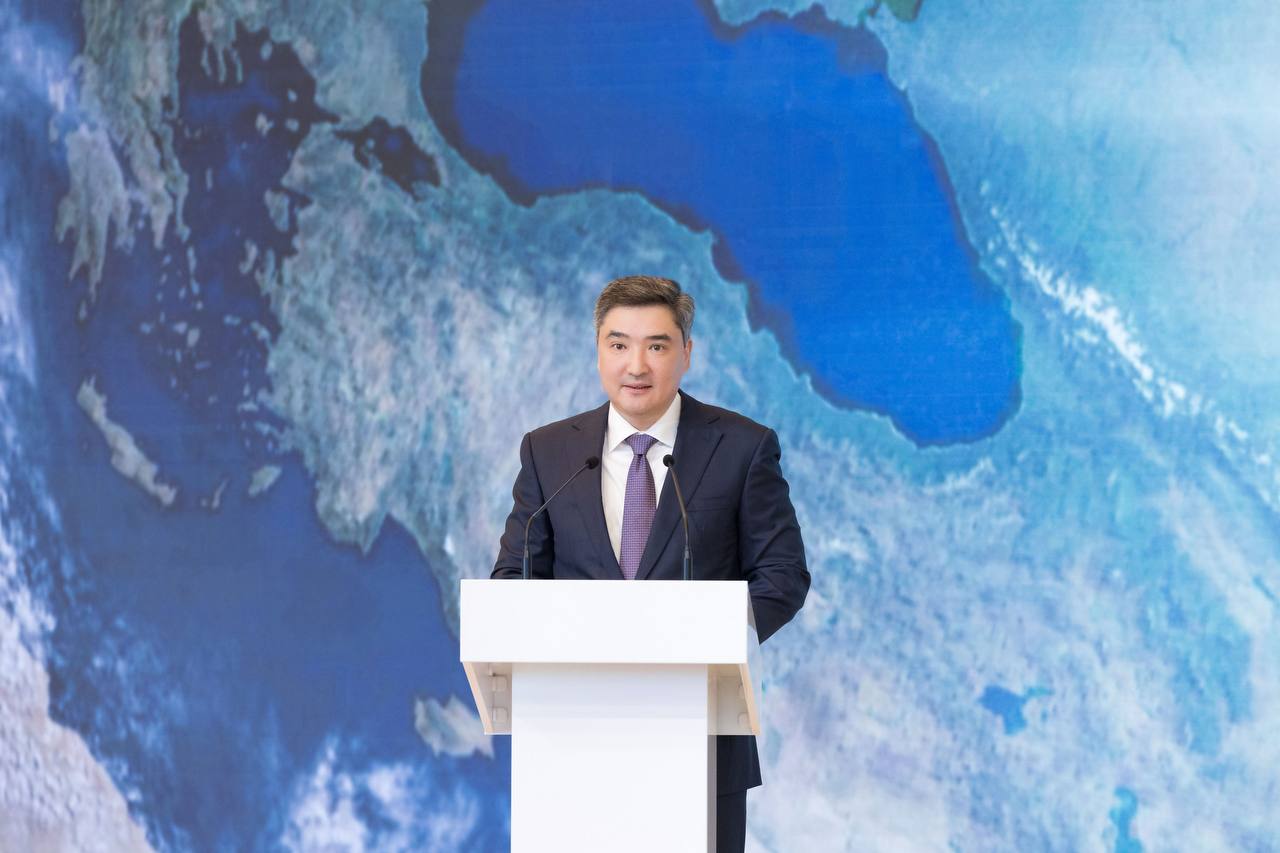ASTANA, Kazakhstan, July 25. Kazakhstan’s Prime Minister Olzhas Bektenov has called on Caspian littoral states to cooperate in addressing the issue of the Caspian Sea’s declining water levels during his speech at the First International Environmental Conference, Trend reports.
In his address, Bektenov identified the shrinking of the Caspian Sea as one of the key regional challenges. He highlighted the ongoing drop in sea levels and stressed the need for enhanced regional cooperation among the Caspian nations.
"Since the early 2000s, we have observed a trend of decreasing water levels in the Caspian Sea. To study this and other related issues, the Kazakh Research Institute of the Caspian Sea was established. Scientists’ forecasts are alarming. Decisive and coordinated actions by all Caspian littoral states are needed to preserve this unique body of water," the Prime Minister stated.
In the broader context of water-related challenges, Bektenov also drew attention to the situation in the Aral Sea region. Kazakhstan currently chairs the International Fund for Saving the Aral Sea. Efforts are underway in the country to rehabilitate the area, including reinforcing the Kokaral Dam, restoring the Syr Darya River delta, supporting the fishing industry, and greening the dried seabed.
The Prime Minister also emphasized the importance of glacier preservation. According to expert forecasts, Central Asia’s glaciers are projected to shrink significantly by 2100. In response, Kazakhstan’s President proposed the Water Tower Partnership initiative at the Riyadh summit, aimed at studying and protecting glaciers. The Central Asian Regional Glaciological Center, operating under UNESCO in Almaty, has become a leading platform for regional research in this field.
Bektenov highlighted that Kazakhstan is ready to take part in
joint water management projects, including regulating reservoirs
and introducing automated water monitoring systems.
Moreover, he underscored the symbolic significance of the forum’s
venue - Altai, regarded as the cradle of Turkic civilization and an
important cultural and humanitarian hub.
The conference also covered a wide range of topics beyond the Caspian’s shrinking, including glacier melting, biodiversity preservation, the use of modern environmental protection technologies, innovative water resource management solutions, and the development of cross-border ecotourism.







